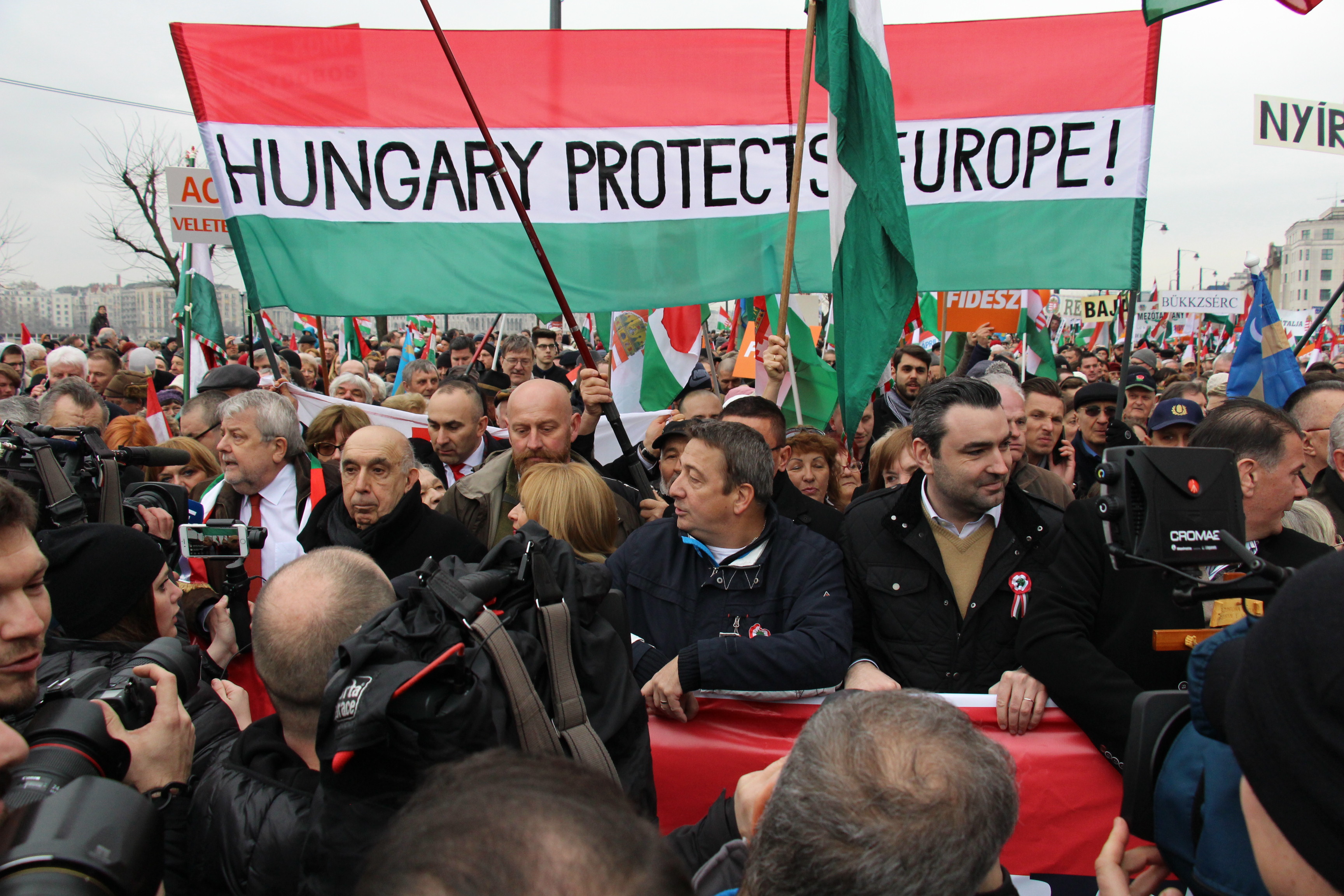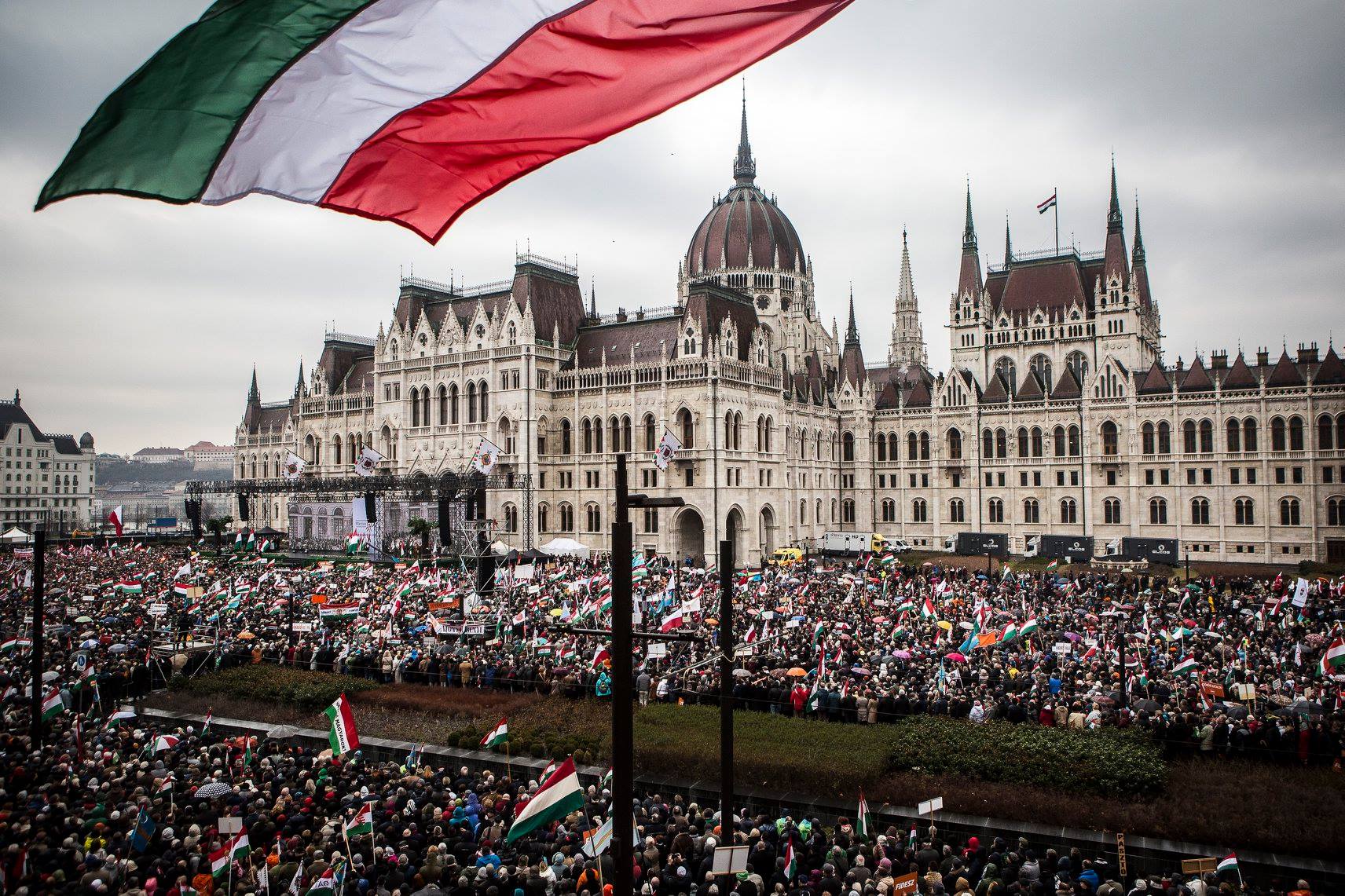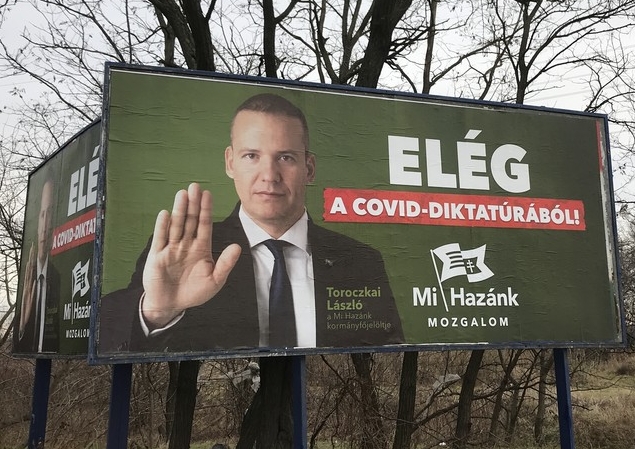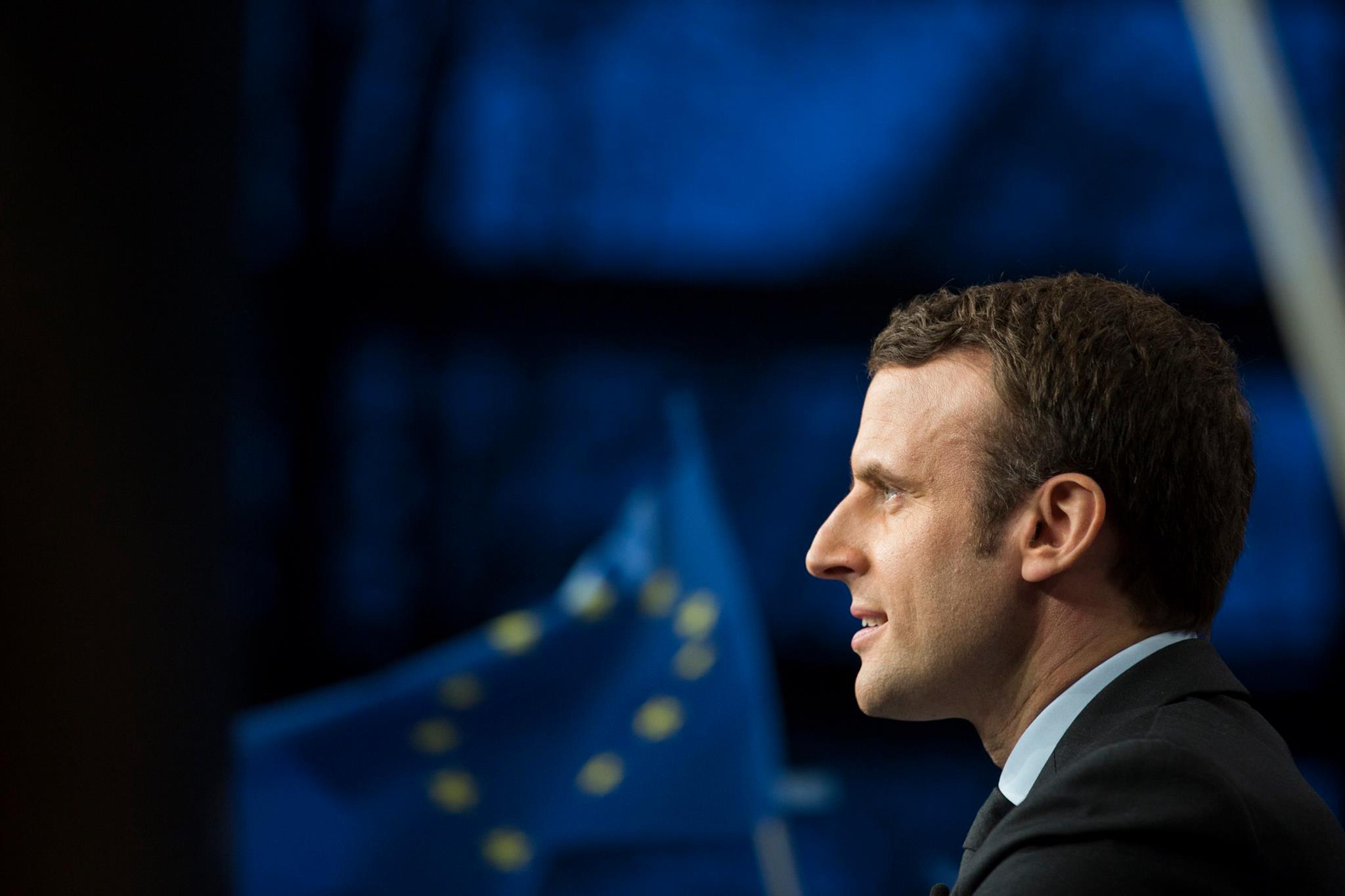Hungary – On the occasion of the National Day and three weeks ahead of the elections, Viktor Orbán demonstrated his popularity and his determination to fight against “an organized international network”.
On March 15, Hungary celebrates the Revolution for Independence of 1848-1849. This is an eminently political day for the Hungarians, and traditionally each party organizes an event with its supporters.
The various opposition parties each gathered a few thousand participants. But the event of the day was undeniably the “peace march”.

The Fidesz, the party of Viktor Orbán, organized between 2012 and 2014 these “peace marches” to demonstrate his popularity and his unmatched ability to gather crowds. The first march aimed to demonstrate to the European Union the support that Viktor Orbán enjoyed in Hungary, while he had to negotiate on his new constitution. But since 2014, no peace march has been organized.
And this year was a record: few hundreds thousands people, up to 500,000 according to some sources, despite the rain, marched in Budapest to express their support for Viktor Orbán. True demonstration of strength for the undecided, the opposition and abroad, the march of supporters of Viktor Orbán – gathered at the call of polemicist and TV show presenter Zsolt Bayer – ended on the place of parliament where the Hungarian Prime Minister held his speech on 15 March.

Before the start of the march, Zsolt Bayer, historical figure of Fidesz and of the Hungarian television, said that the participants are those who still know what “God, the nation and the homeland means, those who know what is the family and what children represent, and recognize the two genders, woman and man”.

Here are the main points of Viktor Orbán’s speech of March 15, 2018:
At the opening of his speech, Viktor Orbán greeted the participants, especially the hundreds of Poles present, recalling the strong and ancient links that unite Poland and Hungary. For the Hungarian Prime Minister, the strength of each country is a guarantee for the other one. And in this sense, “this year’s peace march was not just a national affair, it was also a support for Poland”.
“In the upcoming elections to be held in three weeks, it is not about voting for the next four years […] the issue is the future of the country”. For Viktor Orbán, his supporters are the heirs of freedom fighters of 1848-49. Recalling that for thirty years, his supporters, united behind him, have fought numerous and important struggles, Viktor Orbán announced that “the main fight is yet to come,” because according to him, “some people want to take our country from us”.
“They want that within a few decades, of our own free will, we’d give up our country to others. Strangers from other parts of the world who do not speak our language, do not respect our culture, our laws and our ways of life. Who want to replace our people by theirs. They want that in future, it will not be us and our descendants who live here, but others. And there is no exaggeration [in my words],” said the Hungarian Prime Minister, later explaining the situation in Western Europe and presenting it as a counterexample.
“Those who do not stop immigration at their borders will eventually disappear”. According to Viktor Orbán, “some external forces and international powers try to impose this on us”. And the elections of April 8 are in his opinion a good opportunity for these forces to assert their agenda. “So we do not just want to win an election, but our future.”
“Europe, and within it, Hungary, has arrived at a critical point: never have the patriotic and internationalist forces opposed in such a way.” For the strong man of Budapest, the opposition is between the millions of patriots and democrats, and the globalist and undemocratic elites.
“We have to deal with a displacement of people, which threatens our way of life. […] It is not the weak little opposition parties that we have to fight, but an international network organized into a real empire. Media supported by foreign consortia and local oligarchs, paid activists, agitators, NGOs funded by international speculators, things that the name of George Soros represents and embodies. It is this world that we must fight in order to preserve ours”.
With a martial rhetoric, Viktor Orbán considered the opposition as a whole an objective ally of George Soros and his interests.
“Europe is invaded. If we do nothing, tens and tens of millions of people from Africa and the Middle East will come to Europe.” Rejecting the passivity of Western Europe, Viktor Orbán warned Europe against the future African demography. “Brussels does not defend Europe,” said Orbán, insisting on Brussels’ willingness to support such immigration.
“After the elections, we will seek redress. Morally, politically, and legally”. For the opposition, this sentence sounded like a threat.
“As our forefathers rightly said, a coward folk has no country. […] We have always fought, and we have always won at the end. We have sent back home the Sultan and his Janissaries, we have ejected the Habsburg Emperor and his soldiers, the Soviets and their comrades, and now we are going to eject George Soros and his networks. We ask him to return to America and take care of them!”
Back on the immigration topic, Viktor Orbán explained that one single error is enough, “if the dike collapses and the water flows in,” he said, “the cultural conquest will become irreversible.”
In conclusion, the Hungarian Prime Minister appealed to the young people, to tell them the importance of having a homeland. “Dear Hungarian youth, the homeland needs you,” he said, “come and join us in our fight so that when you’ll need the homeland you’ll still have one.”
The speech ended with the recitation – not the singing – of the national anthem – which is a prayer – as well as a call to fight.




